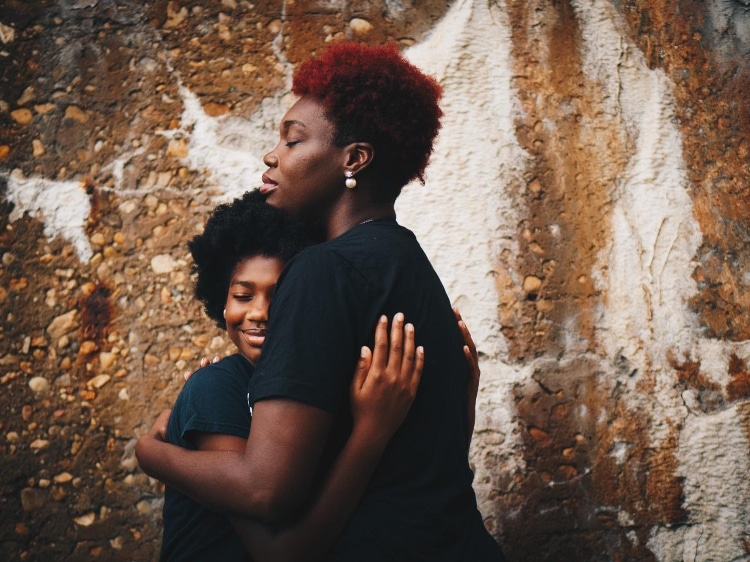Our youngsters change into adults faster than we imagine they may once they are young. Yet while the transition might sound swift to us, many teenagers struggle as they learn to navigate what this evolution means for them. In today’s modern world, with infinite possibilities and rapidly evolving societies, it’s becoming increasingly difficult for our youth to search out their place.
While mindfulness will not be the one tool that teenagers can use to administer their transition into maturity, it’s a crucial one – one which empowers, uplifts, and is all the time at their disposal. Teaching mindfulness to teenagers is one in every of the best gifts we will offer to our youth – and, it’s a present that can carry on giving.
How Mindfulness Advantages Teenagers
From pressure to perform academically to pressure to slot in with one’s social group, teenagers have rather a lot to navigate. What’s going to they study? What’s going to they do post-graduation from highschool? What are their core values and innate gifts? Where will they find their authentic place on this world?
All of those questions (and the remaining that include them) is usually a tough load for teenagers to hold. Many teenagers struggle with anxiety, depression, low self-esteem, chronic stress, and other conditions that impede their ability to enjoy their youthful years.
While mindfulness will not be a fix-all for the above concerns, it may well actually enhance self-awareness and supply teenagers with certain tools to more effectively navigate their experience. In actual fact, studies have shown that mindfulness will be of profit to youth in the next ways
By providing teenagers with the tools of mindfulness, we equip them to higher recognize what they’re going through and to more effectively navigate any challenges that arise. Mindfulness is entirely free and all the time accessible, so it’s something that teenagers can continually return to – whether guided or on their very own.


How Do I Teach My Teen Mindfulness?
In case you wish to show mindfulness meditation to your teenager (or to a gaggle of teenagers), it is crucial to be thoughtful about the way you approach it. Consider the demographic and the unique needs of those you will probably be working with. What mindfulness practices and methods of delivery make probably the most intuitive sense to you?
Listed below are some suggestions for you to contemplate the subsequent time you might be teaching mindfulness to teenagers, whether at home, at college, or in another setting:
Engage teens with an anecdote that’s relevant to their experience.
One great method to get teens thinking about mindfulness is to supply them a story that they will relate to. For instance, did you struggle with anxiety whenever you were in highschool? Did you’re taking more time than your peers to work out what profession path was best suited to you? Tell a story that makes a connection between you and them. Show them your humanity. Offer them something that may make them think, “This mindfulness thing could be good for me.”
Be sure that your teachings are flexible and non-dogmatic.
One other consideration to make is the proven fact that teenagers (as much as or greater than anyone else) don’t prefer to be told what to do. Rules are sometimes good for them, but they prefer to mess around with boundaries; they prefer to have some freedom. When teaching mindfulness to this demographic, make space for them to explore the practices in their very own way. As an illustration, you may note that movement during meditation will not be bad or flawed, but invite them to take pause before moving and to grant each movement their full attention.
Increase engagement and efficacy by offering a wide range of different practices.
Moreover, it is crucial to contemplate that every teen you teach mindfulness meditation to will gravitate towards some practices greater than others. Because of this, particularly when teaching to a gaggle, it is useful to supply a spread of various techniques and practices. For instance, you may offer them three different anchors to select from: the ground or chair beneath them, the flow of their breath, or a grounding word or phrase to repeat (i.e. ‘I’m here’ or ‘peace’). Exploring a spread of practices may even help to maintain them engaged and learning. Fortunately, mindfulness exercises for teenagers are available many various shapes and forms.
Expect laughter, distractions, or other signs of resistance.
Moreover, when teaching mindfulness to teenagers, be prepared for anything. Some teens (or groups of teens) will probably be naturally drawn into the practice. Others might resist, find the silence incredibly uncomfortable, or struggle to stay focused. This may even shift from everyday for every teenager. Be patient, open, and compassionate towards whatever arises.
Model mindfulness beyond formal teachings.
Lastly, do not forget that, similar to children, teenagers learn rather a lot from the on a regular basis actions of those around them. As a parent or teacher, the best way that you simply engage together with your own life will influence them greatly. So, be mindful of how you might be exemplifying mindfulness outside of formal practice. Model mindful ways of being, reminiscent of mindful listening, smart motion, honesty, vulnerability, and self-awareness.

7 Mindfulness Exercises for Teenagers
In case you want to take the subsequent step and to share certain mindfulness teachings with the teenagers in your life, consider the next exercises as a reference point. You’ll be able to adapt these practices as suits the group or individual you might be working with. Do not forget that there isn’t any ‘right way’ to show mindfulness. Simply do your best to satisfy your teenagers where they’re that – and to listen and learn in return.
Create respiration space.
At the beginning, you may also help teenagers to decelerate and to tune inwards by acquainting them with the breath. Though it’s ever-present, most youth don’t mindfully tune into the flow of this life force. By teaching them tips on how to, you offer them a straightforward tool that they will turn to every time they feel stressed, overwhelmed, or just must decelerate. An easy 5-minute respiration exercise is a superb meditation for teenagers to learn to do on their very own.
TRY THIS MEDITATION FOR INSPIRATION: Respiration Space by Vidyamala Burch
Nourish self-confidence.
Since many youth struggle with self-confidence and self-worth, an amazing meditation for teenagers is one which strengthens their sense of unconditional worthiness. One of these practice will not be about self-inflation. It is solely an invite to reinforce confidence in oneself – to see that every one in every of us is innately loved and worthy.
DOWNLOAD THE FREE MEDITATION SCRIPT: Teen Meditation to Imagine in Yourself
Tune into the physical body.
One other method to practice mindfulness is to tune in to the physical body. Basic body scans (or compassionate body scans) are a wonderful tool to assist youth step out of the considering mind and into the visceral body. This may enhance self-awareness and loving motion towards oneself.
DOWNLOAD THE FREE MEDITATION SCRIPT: Grounding Body Scan
Tune into nature.
Mindful time spent in nature may also be of great profit to teenagers (and to all humans, in truth). Most teenagers in the trendy world don’t grow up with a powerful connection to the natural world. Through mindfulness, you may offer this to them. Consider mindful nature exploration activities or nature gazing practices.
DOWNLOAD THE FREE WORKSHEET: Nature Gazing From Roots to Sky

Teach self-compassion.
An in depth relative of mindfulness, compassion is one other excellent skill to show to teenagers. Equip them with the know-how to take ‘breaks for self-compassion’ once they must. That is undoubtedly a present that can support and nourish them as they move through life. It’ll help them to nurture themselves from inside.
DOWNLOAD THE FREE MEDITATION SCRIPT: A Break for Self-Compassion

Get to know the emotional body.
One other supportive mindfulness practice to share with teenagers is one which enhances their ability to witness their emotions without becoming carried away by them. As an illustration, you may teach them tips on how to label emotions by directly noting ‘sadness’ relatively than mentally repeating ‘I’m sad.’
DOWNLOAD THE FREE WORKSHEET: Clarifying Emotions
Cultivate gratitude.
Lastly, teaching youth tips on how to cultivate gratitude will probably be of great profit to their overall mental wellbeing. This will be explored through mindful journaling exercises followed by opportunities to share. Note that gratitude will not be about disregarding the struggles of life; it is solely about training the mind to see more of the great.
DOWNLOAD THE FREE WORKSHEET: Gratitude Journal







